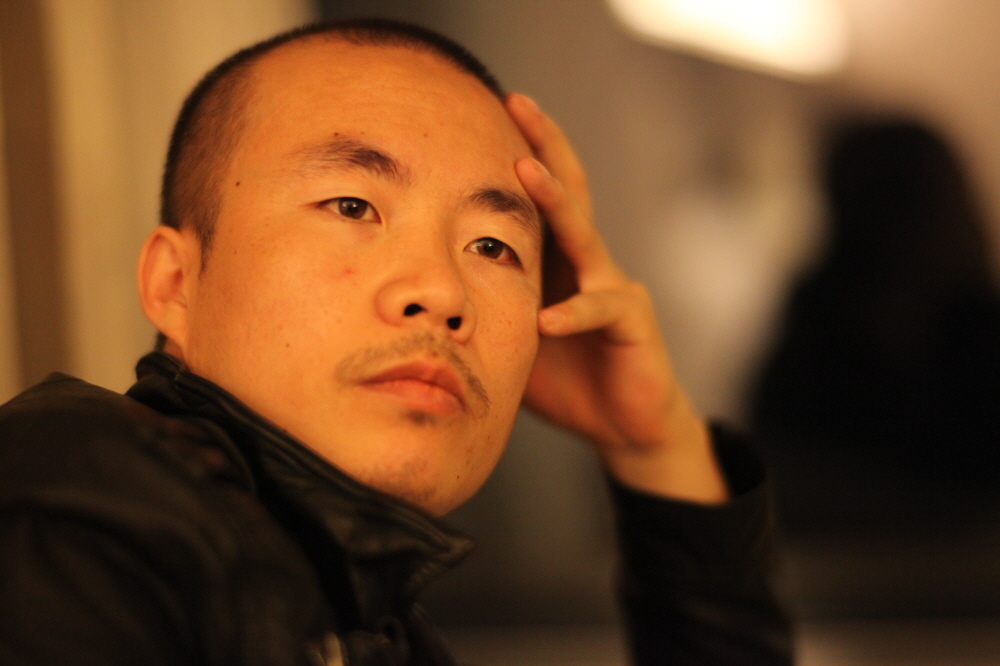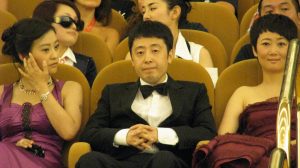Chinese director Li Ruijun’s film Walking Past the Future has been added to the 2017 Cannes Film Festival’s Un Certain Regard section in a face-saving move for the world’s second second-largest film market.

Festival organizers announced the addition of the Li Ruijun’s (李睿珺) film to the prestigious event’s competition line-up on Thursday, reversing what had appeared to be a snub of Chinese film for the second year running.
Li’s film follows a young woman played by popular actress Yang Zishan 杨子姗 as she attempts to help her parents make a better life for themselves in their home province of Gansu after living and working in the southern city of Shenzhen for 20 years.
“My main reaction is it’s overwhelming. We’re still doing some post-production work and time is pretty tight. It feels like there’s not enough time for it all — but other than that no particular reaction,” Li said, speaking to local media on Friday.
It’s the third time one of Li’s films has been included in a European film festival. In 2012, his film Fly with the Crane (我乘白鶴去了) made its premiere at the 69th Venice International Film Festival in 2012 and River Road screened at the Berlin film festival in 2013.
Chinese productions were conspicuously absent from the 2016 official selection of the festival — an absence which seemed to be repeating itself for the second year in a row when this year’s line-up was announced earlier this month.
At the time, festival director Thierry Fremaux seemed to deliberately leave the door open for a late entry but stressed that “more commercial” Chinese films are “not exactly the kind of thing we should present in Cannes.”
The Festival’s decision to invite Chinese actress Fan Bingbing to serve on the jury of the festival, as well as this latest addition Walking Past the Future, should help to give a boost to China’s prestige.
The last two Chinese-language entries in the main competition line-up at Cannes were in 2015 with Jia Zhangke’s Mountains May Depart and Hou Hsiao-hsien’s The Assassin.
Last week, veteran Chinese director Chen Kaige, the only Chinese director to win the Cannes Film Festival’s Palme d’Or, dismissed the apparent snub of Chinese cinema as “not the end of the world.”
Speaking at the Beijing International Film Festival, the director likened the Cannes jury to the UN Security Council: “Of course we’ve got a seat at the table, but unfortunately sometimes there aren’t any Chinese films,” Chen said.
Speaking to Chinese media this week, director Feng Xiaogang weighed in on the controversy stressing the subjective nature of the Festival’s decisions.
While Cannes overlooked his latest film I Am Not Madame Bovary it was not only accepted by the San Sebastian Film Festival but even went on to win the best film and best actress award there.
“It just comes down to the difference in taste between the San Sebastian Film Festival judges and the Cannes Film Festival judges,” Feng said.
The renowned director even revealed his belief that his daring use of a circular frame in Bovary was the reason the film didn’t make it to the Cannes Film Festival.
“There’s a lot of luck involved when it comes to these festivals,” Feng told Sina Entertainment. “When we submitted I Am Not Madame Bovary to the Cannes Film Festival they were quite hesitant and indecisive about it.”
“But when we submitted it to the San Sebastian Film Festival they said ‘We really love this movie, join us!’ and gave us the best film award. But Cannes were indecisive about the circle [the film’s circular frame] was it OK or not?





